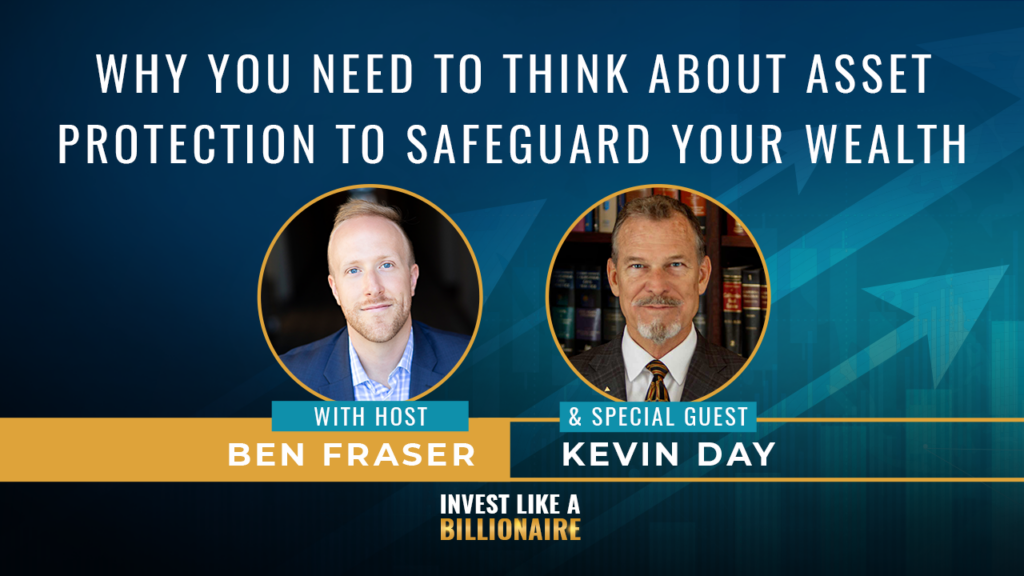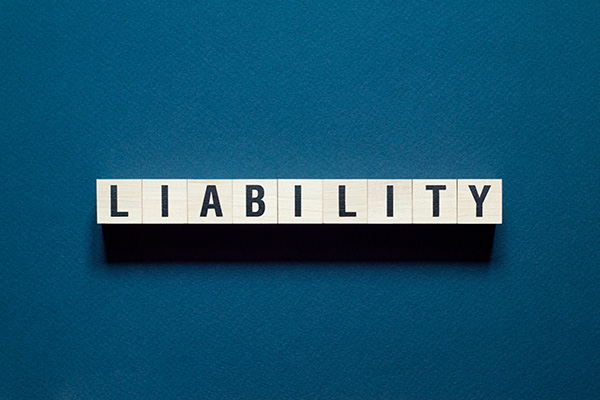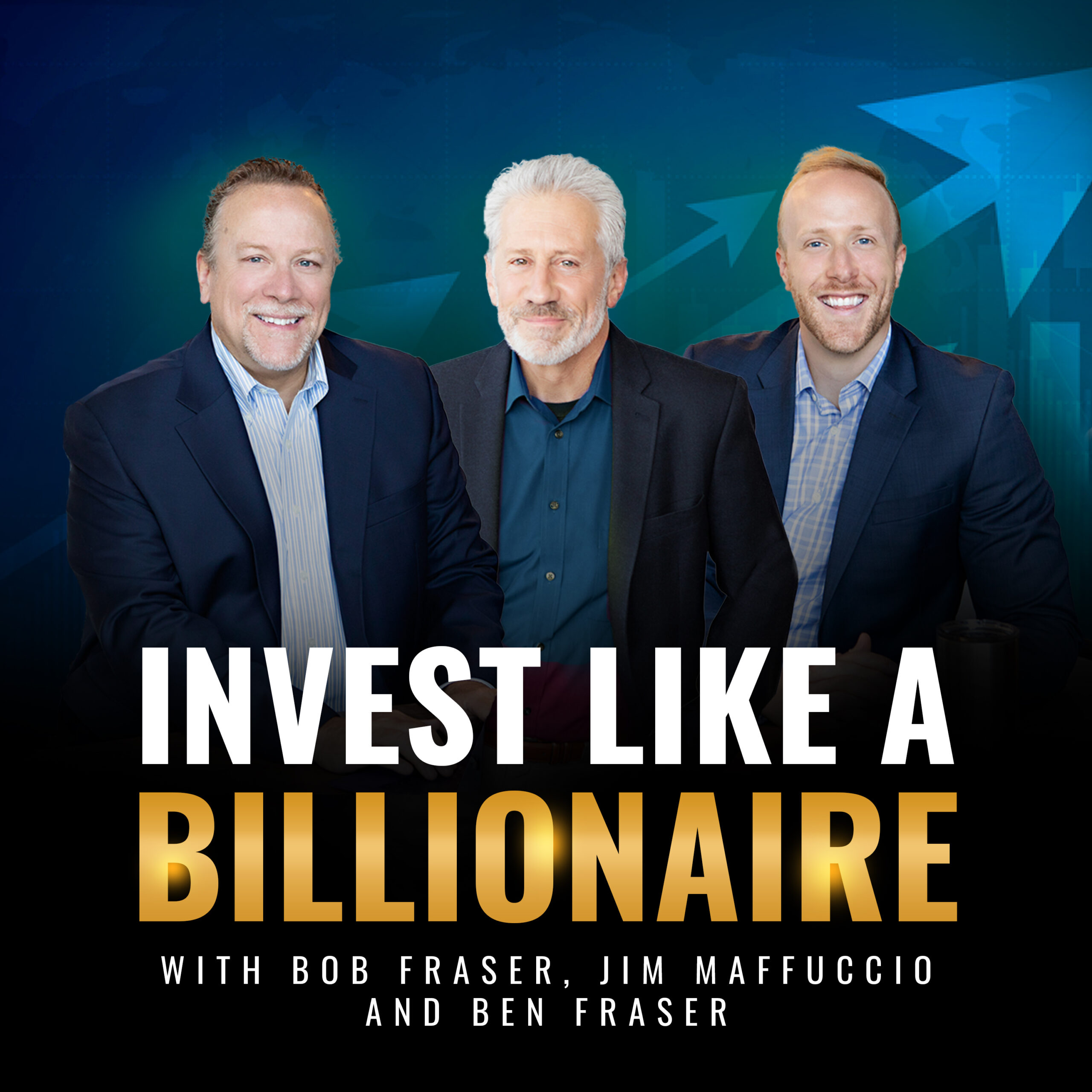
One of the nation’s top asset-protection attorneys, Kevin Day, shares the keys to asset protection and privacy planning that the ultra-wealthy use, but that all can access easily. Kevin dives into irrevocable and offshore trusts, and how entrepreneurs and business owners can benefit from the extra protection they provide. Curious to hear about the biggest financial threats that entrepreneurs and investors face? Tune in!
—
Watch the episode here:
Listen to the podcast here:
Why You Need To Think About Asset Protection To Safeguard Your Wealth W/ Kevin Day
We could not contain our excitement on the episode, which should come through. This is an episode where we interviewed Kevin Day, who is the premier attorney on asset protection in the country. He shared some cool nuggets. We talk about asset protection and privacy planning, which are concepts that may sound a little ethereal.
Some amazing strategies that he’s laying forth that are used by the billionaires but are accessible to everybody and anybody should be looking at these. It’s very much super important.
He also talks about the biggest threats to investors entrepreneurs and what they are and the answer will probably surprise you on what it is. I’ll talk about offshore trusts, which is a whole different thing. I hope you enjoy this episode. It’s going to be great.
—
We’re excited about this interview. We are speaking with Kevin Day of Tresp, Day & Associates. If you’ve been following this show for a little bit, we love talking about the strategies and the tactics that the ultra-wealthy are using and applying those into our personal financial plans. One of the very interesting topics but maybe under-looked areas of financial planning, are asset protection and privacy planning. We’re excited to get into this.
We have one of the top attorneys in the country on the show talking about this. A quick background on Kevin. He’s from Solana Beach, has been practicing for over 30 years and is a partner at the Tresp, Day & Associates. He’s been working in lawsuit protection, estate planning and domestic and international asset protection. He caters to high net-worth individuals with complex situations, as well as entrepreneurs. His firm is 1 of the top 2 law firms in the country for state planning focused on asset protection, privacy planning. Kevin, you’ve written five books on these different subjects.
It’s the books on offshore money strategies. I’m super pumped. I can’t wait. I got about 100 questions I want to ask.
Let’s jump in and maybe give us a 30,000-foot view of your journey into the space and how you landed, where you are now.
It was totally by accident. I have an MBA in International Business. I was all about anything international. As I was starting my practice in 1987, the head convention on international trust was signed by the United States. It was created for the first time when you could create an irrevocable or lawsuit-proof trust and name yourself as beneficiary. Entrepreneurs heard about that. They went to their lawyers. Their lawyers didn’t know anything about it. They went to the continuing ed people and the four big continuing ed companies in the United States found an attorney and me down in Florida who had beat me to the press with a little Nolo press on lawsuit protection.
He and I became the speakers around the United States. I’d love to say that I had some brilliant plans in mind but I didn’t. I was in the right place at the right time. I count my blessings. I’ve had a great life working with entrepreneurs, which I absolutely love. I have full passion about what I do because our legal system, although it’s a good legal system so many bad things happen to people because our court system has gone awry that I feel very passionate about my area of law, protecting people from all the other lawyers, the litigation lawyers.
I want you to explain at level one what this magic trust is. Is that the main tool you’re still using? Is that a key estate planning tool or an asset production tool?
That is key because, as entrepreneurs, people will be familiar with what they can own. Lawsuit protection boils down to technical ownership, not control, not whether it is part of your estate plan, not whether you have full access to assets. It’s a legal title. Corporations, LLCs, limited partnerships can own things but they have to have owners. They have to have a shareholder member. There are only two ultimate owners in our legal system. That’s a human being, nobody owns you or an irrevocable trust. It’s the ultimate owner.
We can segregate things under the law, even if you’re the manager down below at companies, even though you have your checkbook, you used to own it or it’s part of your estate plan, it’s separate from you under the law. That’s very powerful to the point of legal deniability. Let’s say somebody asked you, “Do you own Golden Mountain Enterprises Company?” You’re able to legally under penalty of perjury saying, “No, I am not.” That’s a game-changer. We don’t want to rely on secrets. Secrets are powerful. Privacy is important but we want to create a structure that I will be proud of and the client will be very pleased with. If I can go to the judge and say, “This is exactly what we did and when we did it and you can’t get to it.”
Give us a concrete, super simple example of how it works. How does the trust work?
All of your readers, every entrepreneur, want to be in the fun stuff. My stuff isn’t fun because it’s saying what horrible things would happen. This is a little bit technical but important. Trust split ownership. When we usually think of ownership, we think of the use of assets and legal title. What trust does is split that to beneficial ownership and fiduciary ownership or title holding, which is usually a trustee.
Where does control sit?
The control could be at the trust but we work so that the trust is dormant. Very few entrepreneurs want to be like a Kennedy grandchild and go to a trustee and say, “Write me a check or buy me a car, buy these things, investments that I’ve been following.” All we do is have the trust as the owner of the share certificate but don’t put any assets or account up into the trust. That’s legally sufficient to change the ownership from you to the trust.
We use underlying companies in privacy jurisdictions like Nevada or Wyoming where your name nor the ownership of the company is listed in the public records, unlike most other states. You have the checkbook so you’re running your business but you’re only as a manager. You still have the legal right to say, “I’m not the owner. You can’t take it.”
I’m an engineer by training. This is a business owner. That’s your typical scenario. I create a trust in Wyoming. Paint a picture. Where does ownership sit? Where does control sit? How does beneficial ownership work?
We create the trust and put it on the shelf. We create the underlying company in a privacy jurisdiction that’s owned by that trust. LLC, typically because it gives most tax flexibility and tax option. We usually use Nevada for the company. The companies there are very good but for budgetary constraints sometimes we’ll use Wyoming because they’re cheaper to maintain.
All you do is know that you have an extra checkbook that you operate. You have two checkbooks now. You want your long-term savings and investment accounts in this new privacy company. That way, you have segregated from yourself but your life isn’t going to change that much. Instead of having a savings and checking account in Kevin Day’s name, now I have the checking account in Kevin Day’s name but the long-term savings account is now in Pinetree Funding of Nevada.
It’s still not clear to me. You got an LLC. That’s your operating business. It’s in the jurisdiction of Nevada and that’s owned by the trust. Is that what you ended up doing?
That’s correct.
There are only two ultimate owners in our legal system. That's a human being or an irrevocable trust. Share on XThe LLC is owned by the trust. The trust then receives the benefit and is the owner of that LLC. Where does control sit?
Control sits down in the LLC. The ownership is up in the trust. You, the investor, are the beneficiary of the trust. It’s all for you and about you but you’re not the legal, technical owner. You’re the beneficial owner.
How does this help from an asset protection standpoint? From my understanding, a Limited Liability Company, LLC provides some protection against liability. What does this extra layer doing for an entrepreneur say from an asset protection standpoint?
Even people that say their lawsuit protection or asset protection attorneys, what they ask is how many things do you own? We’re going to give you seven LLCs. Essentially, it’s putting eggs in different baskets.
It’s to protect one egg from the other egg going bad.
You’re going to lose. Let’s say you have a rental property and the boiler blows up. You’re going to lose that property even if they can’t pierce the corporate veil, which they’ll try to do. Let’s say they don’t pierce the corporate veil. You’re going to lose that rental because that rental is what harmed the person. At least, it doesn’t come and take your homes, your cash investments and your other problems.
A company can be owned by another company. It’s ultimately going to end in the two ultimate owners of trust or you. If it ends in you, you get sued by a freak car accident. You get sued under a breach of contract. Lawyers always throw in fraud because they know insurance will not cover fraud and fraud allows them to pierce the corporate veil. Companies protect you from what’s inside but it doesn’t protect those companies from your personal liability. There are a bunch of ways to make you personally liable for things that are company actions.
If a boiler blows up, you could be sued because you were engaged in fraud. They would allege fraud and that would allow them to come after you personally.
Even if they say we emailed them as the landlord and said that there were weird sounds coming from that boiler and you don’t get there before it blows up, the corporate veil will be pierced.
In a trust scenario, what happens there? How is that a firewall?
What we do is take low-hanging fruit, cash and portfolio and put it into that underlying company of the trust. That’s what lawyers want. They want to cash in a portfolio. They don’t want properties. They don’t want businesses. If that’s all that’s available, they’ll go after that. That’s why you have a fire sale. Everybody goes, “Those jerks, not only did they sue me and it was trumped up in a malicious lawsuit but when they finally got my asset, they sold it at half its value.” They want more money but they’re afraid to hold it. What else is going to go with this property? If we’re the owner then the tenants get to sue the employees or us or the end-users of the business get to sue us. We’re going to jettison it at a fraction of the cost that it’s valued at.

There are a lot of travesties happening there. With real property, it’s high value but also high liability. We use a new strategy that equity strips put friendly liens from your own structure, not from a bank. It’s not Bank of America but Golden Mountain Lending. It looks like a hard money lender. Bank of America’s on first and then your own company, Golden Mountain Lending is on second. That certainly takes care of slip and falls, little teeny lawsuits that can get big but contingency fee attorneys are a business partner with you on the structure. They’re not going to go after something, no matter how great a case it is. I normally make $3 million and an asset is not an asset if there’s no equity in there.
You take the business and you would split it. You split out the cash and the assets and put them in the trust is the idea.
Did you say at the beginning that these are irrevocable trusts?
These are irrevocable trusts. Revocable living trusts are still important for avoiding probate but they are not lawsuit-protected. They have to be irrevocable trusts.
This is where I think the a-ha moment is where you found a long time ago is you can be named the beneficiary on an irrevocable trust because the whole idea is separate from you, its own entity like you’re saying. That’s shocking.
It’s relatively still new to the law. Attorneys don’t know about this weird little area. That’s why they still think an LLC with a charging order or corporate veil is sufficient.
Does estate planning have positive benefits as well? It sounds like it would.
Any trust at its heart is an estate planning tool so it will still include all of your estate planning desires. It will mirror and work hand in glove with existing state plans. We make sure it’s drafted that way.
With the irrevocable trusts, a lot of the reason to do that is for tax strategies or tax savings, doing it in this structure like you were talking about, for asset protection. Does it also add additional tax benefits if you put assets into these trusts as well or not necessarily?
For tax advantages, essentially estate tax, gifting tax purposes, we would use the old fashion from 1987 back to the 10th Century, irrevocable trust where we’re gifting it to our children and grandchildren, dynasty trust prior to our demise. Those are still lawsuit proof but most entrepreneurs say, “We still need to live on these assets. If I want to take $1 million out of it, not just get a salary from the underlying company and control the investments but before our knees give out, we want to take $1 million. We’ve earned all this. We’ve got $3 million. We’ve got $1 million for each of the kids. We want to go to Europe.” You can’t do that if you have a children’s irrevocable trust. We have to have these special new trusts that have you as the beneficiary and they’re essentially tax neutral.
As a trust, you pay higher taxes. Is the trust a taxable entity?
An asset is not an asset if there’s no equity. Share on XIt is unless you put special provisions in it. Even children’s trust, we neuter them for tax purposes but make them effective. It’s called an intentionally defective grantor trust. You say, “I don’t want to buy anything that’s defective.” You want it effective for gift taxes but defective so you still pay the taxes on your estate. There are special provisions for that. The asset protection or lawsuit protection trusts are grantor trusts. They have no tax effect whatsoever. We don’t mess with people’s current scheme.
At what point does someone need to start thinking about this? It’s easy to put off. It’s like going to the dentist. It’s always easy to say, “Those are for the big boys.” At what point does someone need to give you a call?
If they have tenants or employees, even if they’re small, a little coffee cart business, you can’t get enough insurance for one bad E. coli afternoon event. These are broad brushes but somebody at $4 million net worth and above should be considering the offshore trust. It took me a long time gleaning from my clients where their switchover point was. At about $3.5 million, all of our creature comforts are taken care of and we start to have disposable income. We start to say, “I have more money. Instead of my W-2 job, I can invest in the market or real property and get my money pushing the ball for me instead of pushing the ball.”
At that point, we found that estates take a drastic at that $3.5 million mark. It varies for different people if they’re savers and they live tighter budget stuff. At that point, their estate starts to grow exponentially because of that disposable income. There’s plenty of us entrepreneurs that are at $1 million, $1.5 million. Our estate is more critical to us because we’re at that lower amount. Do you want to invest $5,000 or $6,000 to create a plan? We never have people get out of insurance. You want that for the simple problems. You want to be able to turn it over to them.
If you’ve ever made a claim on insurance, the first thing they say is, “We’re going to send it over to legal.” What’s legal doing? They’re looking at a way not to. Taking things into your own hands and that’s what your show is all about. Learning what’s available and taking advantage of everything you can rather than relying on the system because the system has major problems. This is one of the ways to do it, have an irrevocable trust that protects your estate so that no matter how big of a weird event occurs in your life, people can’t take your home and investments.
What are some of the biggest threats that you see to investors and entrepreneurs? What you’re doing is similar to insurance in the sense that it’s covering for worst-case scenarios. Where do you find that most clients are the least protected and the types of threats that litigation and ways that they could be exposed?
Funnily enough, the biggest threat is still us driving cars. That’s worse than employees. You can have 150 employees, 100 doors, tenants and stuff like that. We live in America and throw that out cause we’re going to drive. That’s still one of our biggest threats. There was a case here in California that a motorcycle was hit and there was a $63 million verdict. We don’t buy that insurance. We can’t afford that insurance. You don’t have to hit a bus full of children to get into a $5 million, $10 million, $15 million judgment. You can hit a family of four and if it’s the wrong damage, you’re wiped out and it’s well over insurance limits.
Employee and even tenant issues are typically things that are going to be covered by insurance, the little things. This is what I found. In all cases, when there’s litigation, the defense’s first job is to look if there are any prior, similar cases that this plaintiff has brought. Somebody has a legitimate slip and fall or some case against an employer. The first thing that happens is that they go, “I got $15,000 for that little thing.” They go and try to invent similar circumstances and create a malicious lawsuit later.
We get a lot of clients that say, “There was this invented lawsuit that occurred with tenants or with employees. We don’t want that ever to happen again because it took a year and a half of our time. It took us away from our business. We became less efficient. Our profits went down over ridiculous circumstances and claims. We want to sew everything up so we can throw things in their face.” Elon Musk and some other millionaire got into slander at each other. Elon Musk said, “You can sue away. I don’t have anything to take. They’re all in trusts.”
The billionaire strategists are doing this. They’ve already done this. They’ve locked everything up. One of your points too is it’s not just asset protection but it’s privacy. You can’t even tell who owns it. Is that an issue?
Several years ago, you had to hire a private investigator to get any information on someone. Now there are all kinds of programs that you can find out where people live, what they own, what companies they might be associated with. The presumption is if your name comes up with a company unless it’s IBM, they’re presuming that you might not be the entire owner but you have ownership if you’re the president or manager of a company.

Using jurisdictions that support privacy is important for lowering your profile. If we look at you and say, “They’re associated with three companies and they own X number of properties.” “This is going to be a good lawsuit,” says the attorney. What if they go, “They only own their home and there’s no equity in it?” They don’t see the four other companies that you own. They’re not going to be very enthusiastic about that case. We might run it up the flagpole but we better take a settlement early, fast and low because I don’t think you can get anything out of this turnip.
I have a lot of questions about offshore strategies. Some of our biggest threats are not just domestic lawsuits and log-on crazy but Washington, DC, state capitals, you look at some of the craziness that’s being propagated out there. Certainly, high net-worth has painted a bullseye on everyone and the presumption of wrongdoing. What is out there? I’m honestly clueless. What are the possibilities?
What’s wonderful about the Hague Convention on Trust, us signing it is very high-level law. Municipal law is superseded by state law. States law is superseded by federal law and everybody, including lawyers, say, “The next thing is the US Constitution.” If they never had some esoteric electives in law school, they’re not thinking in terms of treaties, presidential decrees, conventions and they are superior to federal law. Under US law, it removes US court jurisdiction over the trust. If somebody wants to buss that trust, they have to fly to the Isle of Man or the Cook Islands or Montserrat, wherever we put these trusts and sue under that country’s laws.
We’ve infected Canada. We’re trying to influence the UK. We used to be the only country that did not have a loser pay system. The rest of the world says, “If you sue somebody and it was wrong then you have to pay all the defense fees and costs.” A lot of these foreign countries, knowing that America is part of their market, require a cash bond only of the plaintiff to run the case. That’s a big hurdle.
If you’re going to sue someone and these are the countries, you got to put up a chunk of cash in case you lose.
You put $100,000. They have a short statute of limitations. Here, the statute of limitations is a bar on running particular cases. A breach of contract is two years if it’s an oral contract and four years if it’s written. There are some construction statutes that are ten years long. The only way to tack an irrevocable trust domestically or internationally is to prove fraudulent conveyance. You had a known existing current creditor already. You’re trying to dodge paying them.
We could set up a trust in the Cook Islands, for instance, that has a two-year statute of limitations on fraudulent commands. In the United States, judges are the law, not the written law. A judge can say, “You can have another year. We think that there are enough circumstances.” It’s not a drop-dead statute but the rest of the world adheres to its statutes. We could set up a trust. Somebody gets into a car accident or something months from now. We could drag the US case out before they even knew that there was an international component to your structure. Two years is a short statute of limitations.
The offshore money strategy is lawsuit protection. Is that the main benefit? Is that the only benefit?
Having the legal deniability of an irrevocable trust, if they see the interaction between this Golden Mountain Funding and they ask you, “Are you an owner of this?” You’re able to say, “No, I’m not.” That shuts things down.
It’s not a tax strategy, tax avoidance. It’s asset protection.
Yes. It’s very powerful asset protection. There are a few things internationally that you can do that are tax effective but there are very few circumstances where people can do that. There are insurance wrappers, for instance, that we can have a lot more flexibility with our investments internationally but still comply with insurance here in the United States. There’s a thing called Non-Subpart F Income for controlled foreign corporations internationally. It’s rare but people are in the right circumstances where they can have income that they report but don’t have to pay taxes until they are repatriated to the United States. Most people aren’t in those circumstances.
Have the end in mind. Share on XGive me a sense of the budget. You said $5,000 to $6,000, a cost range. What would it be for the international thing? What does it cost you to maintain those things?
If you had the cat’s meow through everything in for a domestic plan, including the equity stripping strategy and the privacy company, that’s going to be about $10,000. We have structure starting at about $5,000 for the smaller estates but still on the smaller states, staying domestic.
That’s cheap insurance.
The international trust is going to be about $28,000 but then the privacy company and the other thing. It’s typically going to be around $30,000.
What does it cost to maintain these? There are extra tax returns that have to be filed. There are fees that are going to the jurisdictions, etc. What does it typically cost?
As a disregarded entity, there aren’t extra tax requirements on the trust but the underlying company, even if it’s passed through LLC, there is the K1 that needs to be filed. There is a little bit more there. Domestic is going to be about $400, $450 a year to maintain. In the international, we need a commercial trustee. It’s going to be about $2,000 a year between the government’s annual registration internationally and the international trustee.
That’s still not that bad. Can you use a normal CPA to do your taxes anymore? It sounds like you have to hire an international genius to do your taxes.
It’s disregarded. There is one form, a 3520 form, which is a declaration form, which is the best part of your defense file to say to the other side, that suing, you hear that found out about your offshore trust, which they usually don’t find out about but 20% do. We say, “Here’s the US law. It’s recognized in all 50 states. By the way, here’s my form that I have to file with the US IRS because it’s an irrevocable trust. You can’t get this. This is legitimate.” As soon as you say international, the other side will try to make heyday, “There’s something nefarious going on.” “Here’s our filing to the IRS.” We work with the client’s CPA so that it’s a one-page form. As soon as the CPA does their first one, they now have a template and they can use it for all future filings.
There’s that little check box on the tax return that says, “Do you own a foreign account?” That always terrifies me to think about checking that. Do you have to check that?
No, not with the trust. Typically, we have offshore trust but we have domestic entities. We’re still the safest place to keep people’s money. There are legitimate ways to invest internationally but most entrepreneurs want to keep their funds here. We’re importing foreign laws, not exporting assets.
It is important for your future. This is absolutely fantastic information.

Kevin, what else did we not ask you? What are the final thoughts you want to leave us with here?
We do a thing called road mapping. It costs $350 to look at where you are now, where you would be for your estate and your objectives and your types of liabilities. What a perfect answer would be? The roadmap is if you don’t have the budget for it, what are the incremental steps to get there, instead of throwing ropes right and left? They’re not the right entities that you’re forming and then you need to throw them away later and you spent money not building toward the ultimate goal. Having the end in mind is important. We can do that. We spend about $1,000 worth of our time on that. We want to stop looky-loos. The $350 for the type of analysis it has done is an inexpensive price.
What’s the best way for folks to get ahold of your firm if this is interesting to them?
It’s Info@TrespDay.com or they can call us at (858) 755-6672 and say, “I read about Kevin on the Invest Like A Billionaire and we would like to do the roadmap.”
I appreciate you taking the time and making these concepts that seem a little daunting very simple and making them very accessible to an audience that didn’t think this was possible. I’m excited and glad to have you on. Thanks so much.
Thank you for having me on. Our philosophy is exactly like yours. If it’s good for the big dogs, how can we, the little dogs, do it?
Thanks so much.
Thank you.
Important Links:
About Kevin Day








